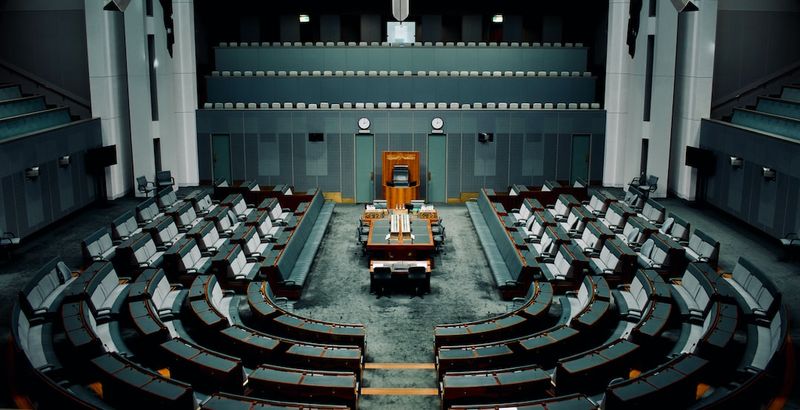Nation Votes No to Voice to Parliament in Referendum
A No Vote Recorded Nationally and in All Six States
In Australia’s first referendum this century, the nation has voted against the proposal for a Voice to Parliament, with all six states rejecting the change. The Voice to Parliament referendum, which aimed to establish an advisory body for Indigenous Australians in the constitution, failed to secure the double majority required for it to pass. The Australian Broadcasting Corporation (ABC) has projected that the majority of voters said No to the proposed constitutional change, with Tasmania, New South Wales, South Australia, Queensland, the Northern Territory, Victoria, and Western Australia all recording majority No votes. The Australian Capital Territory is projected to be the only jurisdiction to return a Yes vote.
Disappointment and Reflection as Indigenous Leaders Call for Healing
The outcome of the referendum has been met with sadness and disappointment among Indigenous leaders who campaigned for the Voice to Parliament. In a statement distributed after the result was declared, Indigenous Yes campaigners called for a week of silence across the country to grieve and reflect on the outcome. They emphasized that now is not the time to analyze the reasons for the defeat, but rather a time for silence and deep consideration of the consequence of this outcome.
Diverse Reactions after Referendum Result
Following the referendum, various political leaders and campaigners have shared their reactions. Prime Minister Anthony Albanese acknowledged the result and expressed respect for the decision of the Australian people, recognizing that sometimes, when aiming high, one can fall short. Indigenous Australians Minister Linda Burney acknowledged the day as a day of sadness and acknowledged that the result was not what they had hoped for. No campaigner Warren Mundine expressed his satisfaction with the outcome and highlighted the clear message from the Australian public wanting to come together as a united country and work towards practical outcomes. Opposition Leader Peter Dutton also welcomed the result, believing that the defeat of the referendum is good for the country.
The Need for Truth and Healing
In the aftermath of the referendum, many people have emphasized the importance of truth, healing, and reconciliation. Indigenous rights spokesperson Uncle Rodney Dillon of Amnesty International Australia highlights the need for truth and healing, as well as the continuing fight for justice and the protection and advancement of the human rights of First Nations peoples in Australia and around the world. Other Indigenous leaders have called for a national healing strategy, emphasizing the importance of coming together and putting the focus on addressing the issues within Aboriginal communities.
Editorial: A Moment for Reflection and Moving Forward
The result of the Voice to Parliament referendum raises several important questions about the state of the nation and its commitment to Indigenous rights and reconciliation. As the referendum debate unfolded, it became clear that the issue of Indigenous recognition and representation is complex and deeply intertwined with Australia’s history and identity. The rejection of the Voice to Parliament proposal highlights the ongoing challenges and divisions within Australian society when it comes to acknowledging and addressing the rights and needs of Indigenous Australians.
It is crucial to recognize that the defeat of the referendum does not mean the end of the journey towards reconciliation and Indigenous empowerment. The voices and perspectives of Indigenous Australians must continue to be heard and valued. The defeat of the referendum should not discourage the ongoing efforts to address the historical injustices and inequalities faced by Indigenous communities.
Moving forward, it is essential for all Australians to engage in meaningful dialogue and reflection. This referendum result provides an opportunity for the nation to come together, listen to diverse perspectives, and work towards a more inclusive and equitable future. Healing and reconciliation are ongoing processes that require commitment and understanding from all sectors of society.
Advice: A Call for Action and Engagement
For individuals seeking to contribute to the ongoing journey of reconciliation, there are several meaningful actions that can be taken:
1. Educate yourself: Take the time to learn about Australia’s history, including the experiences and contributions of Indigenous Australians. Educate yourself on the issues at hand, such as the concept of a Voice to Parliament and the broader push for Indigenous recognition and self-determination.
2. Listen and engage: Seek out opportunities to engage in conversations with Indigenous communities and leaders. Listen to their stories, perspectives, and experiences. Attend community events, forums, and workshops that promote understanding and dialogue.
3. Support Indigenous organizations: Donate to or volunteer with organizations that work towards Indigenous empowerment, rights, and improving the lives of Indigenous Australians. This support can be financial, but also includes advocating for their causes and amplifying their voices.
4. Advocate for change: Engage with local, state, and federal representatives to express your support for Indigenous rights and reconciliation. Write letters, make phone calls, and participate in peaceful demonstrations and rallies that aim to raise awareness and influence policy change.
5. Foster inclusivity: Embrace diversity in your daily interactions and work towards creating inclusive environments in your community. Challenge stereotypes, biases, and discrimination, and actively promote a culture of respect, understanding, and equality.
Reconciliation is a collective responsibility, and it requires the commitment and actions of every Australian. By engaging in these steps, we can contribute to a more inclusive and just nation that recognizes and values the voices and rights of Indigenous Australians.

<< photo by Aditya Joshi >>
The image is for illustrative purposes only and does not depict the actual situation.
You might want to read !
- The Battle Down Under: Ireland vs. New Zealand – Rugby World Cup 2023 Quarter-Final Preview
- Aussie Voice Referendum: Live Results, Vote Tally, and State-by-State Map
- Australia Decides: Voice Referendum Live Results – Mapping the Vote by State
- “The Voice referendum LIVE updates: PM laments Yes vote loss as Australia faces a divisive outcome”
- “Jacinta’s Defiance: Australia Denies Racism Label Amidst Growing Scrutiny”
- Viva Las Sevens: The NRL’s New Sin City Dilemma
- “The Voice referendum aftermath: PM laments loss of Yes vote”
- “Democracy Calling: The Voice to Parliament and Australia’s Crucial Vote”
- “Diverse Voices Down Under: Ray Martin Advocates for Voice to Parliament Referendum”
- Voice to Parliament Referendum: Early Voting Begins as Support and Opposition Vie for Votes




